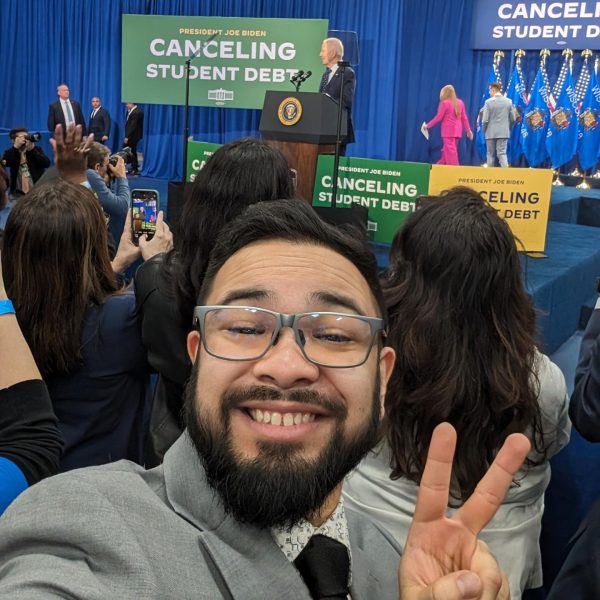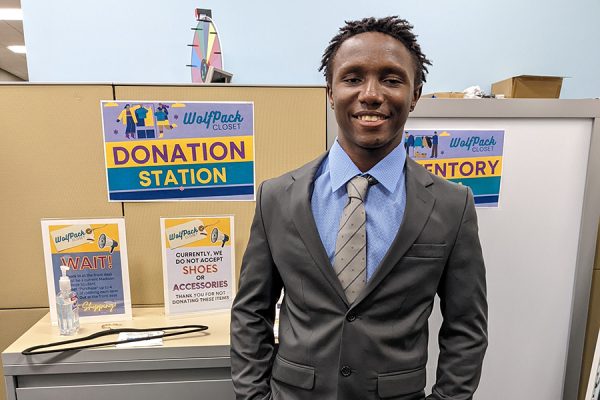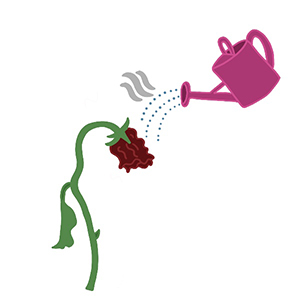Will Baltimore be a catalyst for change?
May 11, 2015
On April 12, 2015, a young man was detained by Baltimore Police for an unknown reason, and placed inside of a police van where he sustained a horrific spinal cord injury that would lead to his untimely death just one week later. Freddie Gray was 25 years old.
Stories like this are not told every day, but not because they do not happen, instead it is because the majority of people in this country – the white majority – simply do not care to know about it. The facts in the Gray case are becoming clearer with each new day, as Baltimore City State’s Attorney Marilyn Mosby works to seek them out.
What is not clear to so many citizens of this great, “free” nation is why it is so undeniably difficult for the white majority to accept that police officers, who are sworn to uphold and protect the laws of this nation, would have such disregard for the human lives they have sworn to protect.
Even after the six police officers in question were charged with a range of crimes including murder and manslaughter, many minds are unchanged as it relates to the gross abuse of power by the very people so many wish to trust.
Some may claim that there is an unjust perspective that paints an ugly picture of law enforcement officers, which could simply be attributed to the easy access of video filming, instant messaging, and social media. Similarly, it could be argued that dangerous and unpredictable weather has not increased, but news of such weather is now just so accessible to people all around the world that in a matter of seconds we here in the United States have detailed information about a volcanic eruption in Chile, or an earthquake in Nepal.
However, access to information does not increase the volume of information that is accessible. What does increase the amount of information are recurring incidents, similar situations and the repetition of an undertone of disposition for the African American male by our nation’s law enforcement officials.
I pose the question: why such denial? Perhaps it is because people simply want to believe that the police are the good guys. Maybe the white majority needs to believe that the police are the good guys.
Maybe it helps them to sleep better at night, knowing that their idealized father figure is out there looking out for their best interests, making sure that the boogieman stays under the bed, making sure that the whosits in the whatsits never escape the dark corners, and keeping all of the sinister ghouls and monsters in their rightful places.
As riots break out in major cities all across the country, the nation seems to be dividing into three distinct factions: those who sympathize with [what can only be described as] revolutionists, those who oppose these societal acts of the defiance, and those who have grown apathetic to the problem that we call systemic racism, the perpetual grinding cog in the white American machine.
The media would have you believe that all young black men are thugs, unless they display obvious and familiar characteristics that resemble white culture. Any young black male is subject to be held suspect of criminal activity, including, but not exclusive to gang affiliation; drug trafficking; assaults; batteries; and disturbing the so-called peace. And while the evidence is clear that there is no disparity among blacks and whites when it comes to who commit these crimes, there is a disturbing disparity among those who are suspected, arrested, and imprisoned for these crimes.
In early March of 2015, Tony Robinson was fired upon and killed by a Madison police officer. When they were halted in traffic due to the protests that ensued, many individuals and groups from the white community exclaimed, “Not good enough,” as if to say, the death of that young man was not a good enough reason to elicit such a response. Some have even claimed that there are those who may have sympathized with the efforts of such groups up until having been made to take a different route to work that day.
I say, if such an inconvenience can work so quickly to change one’s point of view on such a poignant and critical problem such as the irrational and unjustified deaths of young men, then maybe they did not sympathize very much to begin with, and furthermore, are probably not the kind of people these groups want standing with them anyway.
When is enough, enough? What event needs to happen that will satisfy the white community? What catalyst is required so that people will finally see the haunting shame of this great land? Your guess is as good as mine, but one thing that is for sure is that more will be revealed as the truth continues to be told.
I will leave you with one final thought. As we venture out into the summer months, when the temperatures run high and the tempers run wild, be sure to take some time out of your busy schedules to consider the life and story of the people around you. While each of us has our own separate past, filled with failures and successes, along with futures of hopeful dreams and rude awakenings, it is no one’s right to persecute another based on the color of their skin.
We should not be adjudicated for our nation of origin, our station in life, or the higher powers we recognize, and, lest we be judged, let us then be judged by the merit of our characters instead, because that alone is what gives us our intrinsic human value.










